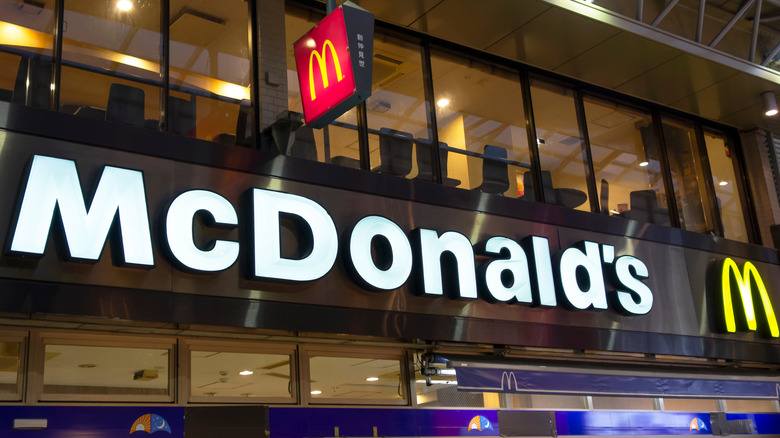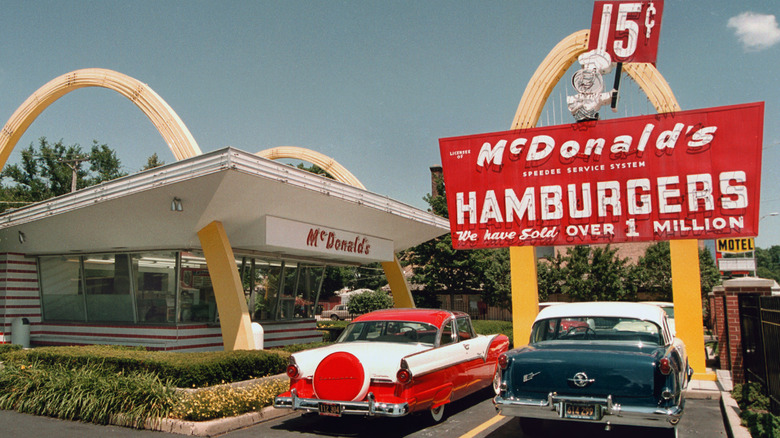How Cult Rumors Once Cut McDonald's Profits
Starting a business these days is apparently as simple as creating an Instagram page, posting irresistibly aesthetic photos, and convincing people to spend a lot of money on your trendy brand. Of course, before the days of rampant internet use, running a business was never quite so accessible, but having a good public image was still crucial.
With that in mind, it's very surprising that McDonald's managed to get off the ground. Sure, the allure of cheap, fatty foods is too much for any excitable brain to resist, but its success is intriguing when considering that their chosen mascots were a terrifying clown and a burglar.
Perhaps it was this unusual approach to public relations that caused McDonald's to be rocked by one of its biggest scandals. TIME reported on a controversy in the late 1970s that accused the founder of the Golden Arches, Ray Kroc, of participating in a satanic cult. But could such a sensational story really be true?
Embroiling McDonald's in a satanic cult claim severely affected its business
According to Mental Floss, the devastating rumor circulating was that McDonald's boss Ray Kroc shared 20% of his charitable donations with Satan's Church in Los Angeles, California. The 1970s saw a rise in concerns about satanic rituals taking place across the U.S., creating a fear that the worship and enactment of violence and immorality were widespread (via Vox). It was also called "Satanic Panic."
Times Colonist explains that the allegation against Kroc stemmed from a church parishioner in Ohio claiming she had heard him say in a TV interview that he supported Satan's church. The story was published in the parish newsletter, starting the rumor's spread.
Ultimately, the claim against Kroc was found to be false — he made no reference to Satan or any other devil-related subject during the TV appearance in question (via Times Colonist). However, Mental Floss notes that the fake news damaged McDonald's reputation, leading to many people boycotting the chain and some branches seeing a 20% fall in profits. This forced the firm's executives to meet with religious leaders to convince them that the rumor was a lie.

